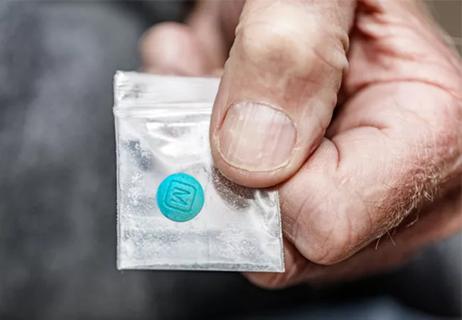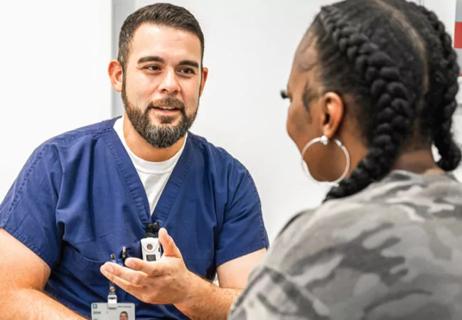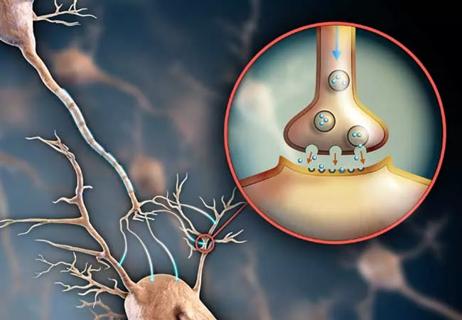Study combines the acute medication therapy with CAMS for long-term management

Cleveland Clinic researchers have received a $2.5 million National Institutes of Health R01 grant to investigate the effects of ketamine infusions combined with the Collaborative Assessment and Management of Suicidality (CAMS) on reducing suicidality in adolescents and young adults.
Cleveland Clinic is a non-profit academic medical center. Advertising on our site helps support our mission. We do not endorse non-Cleveland Clinic products or services. Policy
“There have been a number of studies of ketamine for acute treatment of suicidality in adults, but this is the first randomized controlled trial in youth,” says Cleveland Clinic child and adolescent psychiatrist Tatiana Falcone, MD. “Our idea was to combine an acute therapy like ketamine to decrease suicidality with a therapy that would give patients resources to use over the longer term to manage recurrent symptoms.” That long-term approach is CAMS, a therapeutic framework for engagement, assessment and treatment of suicidality.
Dr. Falcone is leading the single-center study with Amit Anand, MD, Vice Chair for Research in Cleveland Clinic’s Center for Behavioral Health and Director of the Mood and Emotional Disorders Across the Life Span (MEDALS) program in the Department of Psychiatry and Psychology.
The four-year study will recruit 140 patients aged 15 to 24 who have been hospitalized in an inpatient psychiatry unit for a suicide attempt. Participants will be randomized to infusions of 0.3 mg/kg of ketamine over 40 minutes or to normal saline.
A minimum of three and a maximum of six monthly infusions will be given, the first as soon as possible after admission. Following each infusion, response will be assessed using a variety of validated patient-rated and clinician-rated scales that objectively measure intensity of suicidal ideation.
“Studies show that 60% of adult patients have improvement in suicidality after the first ketamine infusion, and the number increases to 80% after the third infusion,” says Dr. Falcone. “That’s why we’re tailoring the number of infusions. If someone is doing well after the third infusion, we’ll stop ketamine but their CAMS therapy will continue.”
All patients will be followed closely for the duration of the study. For the first three months, they will participate in weekly CAMS sessions, both in the hospital and after discharge. That schedule will continue until they are able to report no suicidal ideation for more than three consecutive sessions. At that point, follow-up will change to every other week for the next three months.
CAMS is an evidence-based method through which a clinician and patient collaborate in developing a suicide-specific, problem-focused plan to target and treat drivers of suicidality. Randomized controlled studies have shown that it is effective in adults, but only anecdotal evidence exists in youth. That and its use in combination with ketamine make the protocol for this trial novel.
The researchers anticipate that trial recruitment will begin by early 2021. Ineligible individuals include those who are substance-dependent, have a history of borderline personality disorder or are morbidly obese.
Outcomes to be measured, using validated scales, include number of suicide attempts and number of admissions to the emergency department secondary to suicidality. Results of the research are projected to be available in August 2024.
“Ketamine is effective in the short term, but the period of transition after discharge is very risky,” says Dr. Falcone. “Thirty percent of individuals who attempt suicide do so again within a year. These are patients who feel so hopeless that they won’t participate in therapy. By giving them short-term medication plus tools from CAMS — which uses resources from cognitive behavioral therapy, mindfulness and dialectical behavioral therapy — we hope they’ll have the resources they need to be motivated to participate in treatment and to take care to protect themselves against further suicide attempts.”

Consultation service provides comprehensive care to patients with anxiety, PTSD, schizophrenia, and other high-risk disorders

Study shows a growing openness to the clinical potential of psychedelic treatments

Urine test strips and point-of-care testing may be key to slowing opioid epidemic

Study sheds light on how clinicians addressed their patients’ pain and insomnia during the pandemic

Recovery's in Reach provides treatment options, peer support to those struggling with alcohol and drug use

Experts recommend task-focused strategy for monitoring treatment

Finding changes the treatment landscape of psychiatric illness

Patients benefit when doctors disclose with care